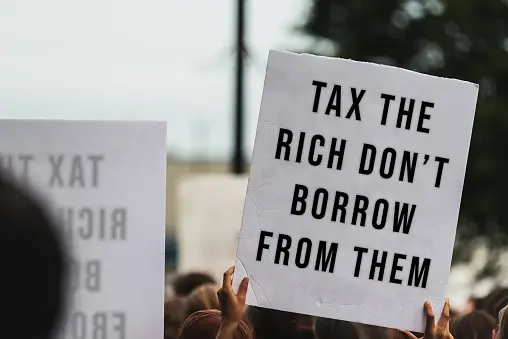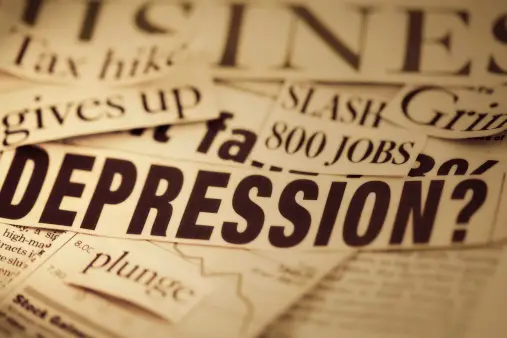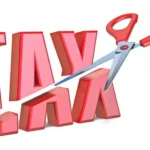Have you ever found yourself navigating the intricate world of tax protests in the Lone Star State? Buckle up because we’re about to unravel the complexities and implications of tax protesting in Texas. From the legal dance in the courtrooms to the impact on your hard-earned dollars, this article is your guide to understanding what it all means for Texans. So, grab a cup of coffee and dive into the fascinating realm of tax protests and the Texan fiscal landscape.
Understanding What Taxes In Texas Are All About
Taxes in the vast expanse of Texas form a complex tapestry intricately woven into the financial fabric of the state. As we embark on this journey, it’s essential to delve deeper into the multifaceted nature of taxes. This helps us understand what they are and how they profoundly influence the lives of every Texan.
Property Tax
At the heart of the Texan tax landscape lies property taxes. It is an omnipresent force echoing through suburban neighborhoods and bustling urban centers alike. Tied to the value of real estate, they play a role in funding local government operations, schools, and public services. As homeowners and businesses navigate the ever-changing real estate market, the ebb and flow of property values directly impact the amount they contribute to the communal coffers.
Sales Tax
Venturing into the realm of sales taxes. This is a dynamic space where every transaction bears a fiscal weight. A percentage of each purchase contributes to the state’s revenue stream, shaping the economic landscape and influencing consumer behavior. The sales tax apparatus ensures a constant flow into the state’s financial reservoirs.

Income Tax
One distinctive aspect of Texas taxation sets it apart from many other states: the absence of a state income tax. While residents may celebrate the absence of this tax, it places a heightened reliance on other forms of taxation.
What Is Tax Protesting In Texas?
Tax protesting in Texas isn’t just a stroll through paperwork. It’s a legal tango with implications for both your wallet and the state’s coffers. Tax protesting, at its core, involves challenging your property’s assessed value for tax purposes. Known for their fierce independence, Texans often find themselves protesting to ensure their tax aligns with what is fair.
The process typically begins with property owners filing a protest against the appraisal district’s valuation of their real estate. Various reasons can prompt this protest. These range from disputes over property value assessments to concerns about information accuracy used to determine taxes. It’s a dynamic interaction between property owners, appraisal districts, and the legal system, where each step can significantly impact the outcome.
Navigating this terrain involves understanding the Texas Property Tax Code. This lays out the rules and procedures for property tax assessments and appeals. The journey requires a strategic approach and a keen eye for detail, from gathering evidence to support your case to presenting it before an appraisal review board.

However, it’s not just about crunching numbers and debating values. Tax protesting in Texas often becomes a reflection of the broader economic landscape and governmental policies. The outcomes can influence local funding for schools, infrastructure, and public services. This makes it a nuanced interplay between individual rights and collective well-being.
As the saying goes, everything’s bigger in Texas, and that includes the stakes in tax protesting. So, whether you’re a seasoned player in this fiscal game or just stepping onto the dance floor, understanding what tax protesting means in the Lone Star State is crucial for anyone looking to navigate the complexities of property taxation with a Texas-sized perspective.
Reasons For Texas Tax Protesting
Tax protests in Texas are a nuanced landscape shaped by a variety of factors, each contributing to the motivations driving individuals to challenge their tax obligations. One prevalent focal point for protest stems from the scrutiny of property assessments. Homeowners often question the accuracy of these evaluations, grappling with concerns about whether their properties are fairly valued. The dynamic nature of the real estate market adds an extra layer of complexity, leaving property owners contemplating the consistency and fairness of their tax burdens in the ever-shifting property landscape.
Economic Challenges
Financial circumstances also serve as a catalyst for tax protests. Texans facing economic challenges, such as job loss or a significant reduction in income, find themselves questioning the rationale behind their tax obligations. In these instances, taxpayers may argue for a more equitable assessment aligned with their current financial realities, emphasizing the need for a tax system that adapts to individual economic fluctuations.
The expenditure practices of local governments also play a pivotal role in tax protests. When citizens perceive inefficiencies or witness what they deem as unnecessary expenditures, they may be motivated to mobilize against what they perceive as unjust taxation. This inclination ties into a broader desire for transparency and accountability in the allocation of public funds, reflecting a civic engagement that seeks to ensure responsible stewardship of taxpayer money.
Moreover, the evolving dynamics within neighborhoods contribute significantly to tax protests. As communities grow and transform, residents may observe shifts in property values and tax assessments that appear disconnected from the on-the-ground reality of their localities. This discrepancy often prompts individuals to challenge the assessments in pursuit of fair and reflective taxation, underlining the importance of an adaptive tax system that mirrors the changing nature of communities.
Historical Perspective Of Tax Protesting In Texas and Famous Examples
Embarking on a comprehensive exploration of the historical perspective of tax protesting in Texas opens a window into the intricate dynamics that have shaped the state’s fiscal narrative over the centuries. From the tumultuous days of the Republic of Texas to the modern era, where tax discourse continues to echo, each epoch has witnessed its unique challenges, voices of dissent, and iconic moments.
Republic Era (1836-1845):
The roots of tax protest in Texas can be traced back to its early years as an independent nation. During the Republic era, when Texas sought to establish its identity, the issue of taxation became intertwined with the pursuit of liberty. Citizens, freshly liberated from Mexican rule, questioned the authority of taxation and laid the groundwork for a tradition of skepticism that would persist through the ages.
Post-Civil War Period (1865-1900):
The Civil War’s aftermath brought about reconstruction and financial recovery challenges. The burden of taxation became a contentious issue, with agrarian communities at the forefront of opposition. The struggles of landowners against perceived injustices in the tax system during this period set the stage for later protests. They marked a chapter in Texan history where economic recovery clashed with the sentiments of the populace.
The Great Depression and the New Deal (1929-1941):

As the nation grappled with the economic upheavals of the Great Depression, Texas experienced its own wave of tax protests. The New Deal policies, aimed at providing relief, inadvertently fueled debates about the role and extent of taxation. Texans, facing economic uncertainties, raised their voices against what they perceived as inequities in the tax structure, becoming part of a national discourse on fiscal policy.
Mid-20th Century to the Modern Era (1950s Onward):
The latter half of the 20th century witnessed a resurgence of tax protests in Texas, reflecting broader national trends. Grassroots movements, legal challenges, and political activism became vehicles through which citizens questioned property appraisals, school funding mechanisms, and the overall tax structure. Notable figures emerged as advocates for tax reforms and transparency in the system, contributing to the evolution of tax discourse in the state.
Famous Examples:
1. Willie Nelson’s Battle (1990s):
Country music icon Willie Nelson’s well-publicized tax troubles in the 1990s became symbolic of individual resistance against perceived tax injustices. His case, which led to the IRS auction of his assets, including his cherished guitar “Trigger,” showcased the intersection of celebrity, finance, and the tax system.
2. Jarrell McCracken and the School Funding Lawsuit (1984-2005):
Attorney Jarrell McCracken played a pivotal role in a protracted legal battle challenging the constitutionality of Texas’s school funding system. This landmark case addressed disparities in education funding and ignited broader discussions about the equitable distribution of tax resources, leaving an indelible mark on the state’s educational and fiscal landscape.
As we delve deeper into the historical tapestry of tax protesting in Texas, these episodes serve as poignant markers of a resilient Texan spirit. Unafraid to question authority and steadfast in the pursuit of fairness within the fiscal landscape, the people of Texas have left an enduring legacy of challenging the status quo and shaping the ongoing discourse on taxation. Join us as we unravel more intriguing facets of this historical saga, exploring the interplay between citizens, governments, and the ever-evolving nature of taxation in the Lone Star State.
Why do people protest their taxes in Texas?
Tax protests in Texas stem from various factors. Property assessments, economic challenges, concerns about government spending, and the changing dynamics within communities all contribute to motivations for challenging tax obligations. It’s a nuanced landscape where individuals seek fair and reflective taxation, ensuring a voice in the fiscal decisions that impact their lives.
Can you provide historical examples of tax protests in Texas?
Certainly! Notable examples include Willie Nelson’s high-profile tax battle in the 1990s, symbolizing individual resistance. Additionally, Jarrell McCracken’s school funding lawsuit (1984-2005) addressed disparities in education funding, leaving a lasting impact on the state’s educational and fiscal landscape.
How have taxes and tax protests evolved over the years in Texas?
Taxes and tax protests in Texas have evolved from the Republic era, through post-Civil War challenges, the Great Depression, and into the modern era. The latter half of the 20th century witnessed a resurgence of tax protests, reflecting broader national trends. Grassroots movements, legal challenges, and notable figures have contributed to the ongoing evolution of tax discourse in the state.
What are the broader implications of tax protesting in Texas?
Tax protesting in Texas extends beyond individual concerns to influence local funding for schools, infrastructure, and public services. The outcomes of these protests contribute to the broader economic and governmental policies, highlighting the interconnected nature of individual rights and collective well-being.
How can individuals navigate the complexities of property taxation in Texas?
Navigating property taxation complexities involves understanding the Texas Property Tax Code, gathering evidence to support a case, and presenting it before an appraisal review board. It’s a strategic process that requires attention to detail and an understanding of the legal framework governing property tax assessments and appeals.
Oluwatukesi Joseph is a Content Writer at LOBF. He holds a Master’s Degree from Obafemi Awolowo University in Architecture, However, his love for writing and content creation has transitioned him into the writing and content marketing field. He has gained relevant certification from other notable Universities where he developed a strong foundation in content marketing and writing.
Outside of work, Joseph enjoys spending quality time with friends and family and playing chess, which he finds often complements his professional pursuits. Joseph is excited to be part of the dynamic team at The Law Office of Bryan Fagan, contributing his expertise to spreading the good news of LOBF to Families across Texas.




